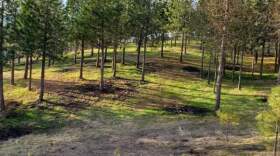-
The fight to slow human-caused climate change has taken another major setback.
-
The EPA has reversed its position on whether or not it can regulate greenhouse gas emissions, eliminating influential rules that were pushing the auto industry toward cleaner vehicles.
-
The Environmental Protection Agency is eliminating a Clean Air Act finding from 2009 that is the basis for much of the federal government's actions to rein in climate change.
-
People in poor countries often get little or no warning about floods, storms and other deadly weather. Local efforts are changing that, and saving lives.
-
A collapsed sewer line, about 8 miles from the White House, pumped 368 Olympic-sized swimming pools worth of wastewater into the Potomac. Repairs could take longer than previously expected.
-
Several athletes are objecting to the International Olympic Committee over sponsorship of the Games by major oil companies. They say fossil fuel use threatens winter conditions needed for snow sports.
-
Italy's Winter Olympics promised sustainability. But in Cortina, environmentalists warn the Games could scar these mountains for decades.
-
Chile is freezing its future to protect its plants.
-
We join a group of mudlarkers to see what's hiding by a creek in Philadelphia, as contributors ask what mudlarking, scavenging the banks of rivers or creeks for treasures, can uncover.
-
The EPA enforced a record low number of environmental laws and regulations during the first year of President Trump's second term in office.
-
Oil analysts who worked in Iraq say Iraqi oil sales had more protections after the U.S. invasion than Venezuelan oil sales today.
-
The Trump administration tried to end or privatize the government Energy Star efficiency program. But now Trump has signed a budget bill that fully funds the program and leaves it even stronger.










